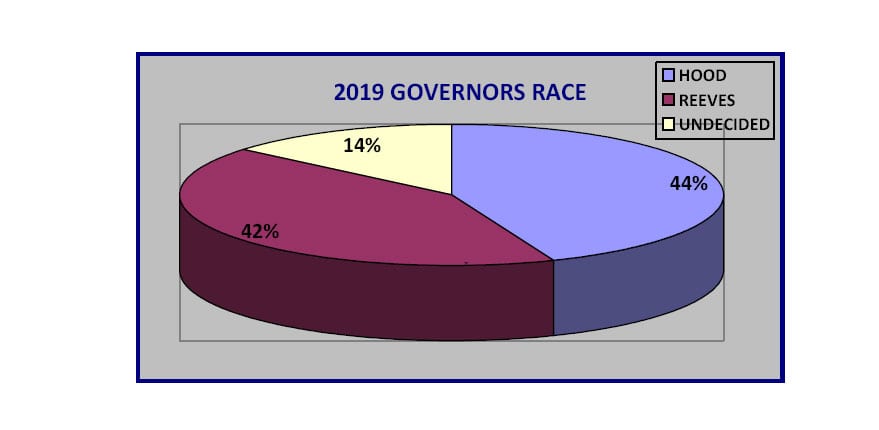
The running joke in the Mississippi Capitol right now is that you can’t swing a dead cat right now without hitting a trial lawyer. As appealing a prospect as that might sound to business people, the trial lobby in Mississippi is in full-scale panic over a bill that threatens the settlement machine of frivolous lawsuits. And if you’ve ever been frivolously sued, it’s probably one of the most maddening experiences a business owner or landowner can face.
In the 1997 film Liar Liar, the trial lawyer character played by Jim Carrey is forced to tell the truth, the whole truth, and nothing but the truth for one day. In one scene, his assistant is describing how a robber broke into her friend’s house, hurt himself, and then sued her friend for $6,000. The assistant asked Carrey’s character if that was justice. He answered “No,” before adding, “I would have gotten him $10,000.”
https://youtu.be/j1cKM-_CKno
This is a comical depiction of an often misused and abused American legal system. But in Mississippi, this example sounds eerily familiar. Under current Mississippi law, juries are actually prohibited from apportioning responsibility (fault) to criminals in suits brought by plaintiffs against landowners.
This law, combined with unclear guidelines for establishing fault, has created a situation in which plaintiffs trial lawyers are targeting business owners for outrageous settlements when a crime occurs on their property. This legal environment is unfairly driving up costs on businesses and causing them to flee parts of the state. And because trial lawyers have generally been unable to police their own for frivolous abuses, the statutory ability to apportion liability away from innocent landowners has now become necessary.
For example, a national residential rental owner has about 17% of their portfolio in Jackson, but 86% of their total costs to settle claims in the nation are in Jackson. This type of situation drives insurance premiums up so high that it makes doing business impossible for owners that don’t have portfolios in lower risk areas of the country. Sadly, some of the areas of the state that need jobs and private investment the most are seeing both driven out by these lawsuits.
Because of this, business groups and others have been working to bring balance to the legal landscape after years of abuse. Over thirty business and trade associations representing agricultural, manufacturing, housing, retail, and commercial businesses, as well as the faith community, are coming together to push two bills in this legislative session.
These bills HB 337 and SB 2901 would change the current situation in which the business owner is legally responsible for 100% of the damages caused by a criminal. The legislation allows juries to apportion, or split, fault between the criminal and the property owner if it can be shown that the owner bears some responsibility for the criminal conduct.
The proposed bills would also set some criteria for how an attorney must prove that the premises owner should be liable for the criminal conduct of a third party. For instance, if there has been a history of similar crimes occurring on the property but the property owner took no steps to safeguard his clients, tenants, or guests, then fault can and should be applied to the owner.
But obviously, some of the fault should also lay with the criminal who actually harmed the victim. Of course, trial lawyers typically don’t want to pursue criminals because they’re usually judgement proof. To insist that we stay with the current law so that criminals bear no legal responsibility for the crime in civil court has not worked to stop crime.
Some are arguing that this will lead to a rise in crime because property owners will no longer feel the need to provide security. In fact, the trial lobby is desperately trying to target squishy Mississippi House Republicans to try to make this issue seem like a law and order issue. It, in fact, is not.
 In spite of hysterical scare tactics, these bills will not absolve property owners of a duty to provide a safe environment nor would it give them blanket immunity when a crime is committed on their property. Premises owners still have a fundamental duty to provide a safe environment for business invitees. This bill, in its current form, does not change that duty. It clarifies only when a premises owner can be held liable for the criminal acts of a third party.
In spite of hysterical scare tactics, these bills will not absolve property owners of a duty to provide a safe environment nor would it give them blanket immunity when a crime is committed on their property. Premises owners still have a fundamental duty to provide a safe environment for business invitees. This bill, in its current form, does not change that duty. It clarifies only when a premises owner can be held liable for the criminal acts of a third party.
The notion that owners will not hire security guards or have security cameras in place if these bills pass is ludicrous. The proposed bills have nothing to do with security guards or cameras. The free market dictates that a business provides their consumers with a safe and friendly environment.
Let’s be clear. Criminals commit crimes, not property owners. Common sense tells you that one way to deter crime is to hold the criminals responsible and not to shift the fault to someone else. Coddling criminals to enrich plaintiffs lawyers who target property owners is not the answer. Good businesses are leaving parts of the state where these types of lawsuits are prevalent.
The bills before the Legislature would ensure that criminals are no longer able to escape civil responsibility for their crimes. They should be put in front of a jury so that the jury can decide who is at fault. If the property owner should have done more to protect its guests and customers, then a jury will make that determination based on clear guidelines in the law. But the criminal who actually harmed the victim should be accountable in court, too.











